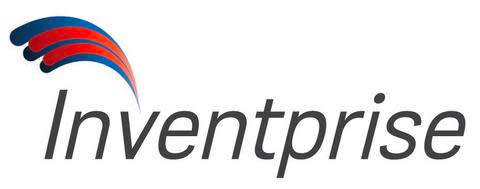Pipeline
Inventprise platform technologies support a robust pipeline of novel vaccines with the potential to unlock large market opportunities with significant unmet medical needs
Discovery
Preclinical
Phase 1
Phase 2
Phase 3
Registration
IVT PCV-25* – Adult
Lead Candidate 25-valent Pneumococcal Conjugate
IVT PCV-25* – Infant
Lead Candidate 25-valent Pneumococcal Conjugate
IVT GBS-06*
Hexavalent Group B Streptococcal Vaccine
IVT Shigella-04
Quadrivalent Shigella Vaccine
IVT Klebsiella*
Klebsiella Vaccine
IVT D-MAP
Dissolvable Micro Array Patch
mRNA RSV
Respiratory Syncytial Virus mRNA Vaccine
* Developed with the PEG Linker Proprietary Platform
Learn More About Our Pipeline Programs
IVT PCV-25: Pneumococcal Conjugate Vaccine
Our high-valent pneumococcal conjugate vaccine, IVT PCV-25, is for pediatric populations globally and is currently in Phase 1 clinical trial. In addition, Inventprise is working on an adult formulation intended for use worldwide.
IVT PCV-25, leverages the Inventprise proprietary conjugation technology platform to provide the broadest coverage against pathogenic pneumococcal serotypes encountered by children. Each one of these serotypes has been carefully evaluated and determined to be critical for the protection of children under the age of 5 regardless of the country in which they live.
IVT PCV-25 will be indicated for immunization for the prevention of pneumococcal disease and otitis media.
The value of the pneumococcal vaccines market will grow from over USD 7.2 billion in 2019 to more than USD 13 billion by 2030. This represents the second-largest segment of the vaccine industry, measured by dollar volume.

IVT GBS-06: Group B Streptococcal Vaccine
Inventprise is currently developing IVT GBS-06, a cost-effective, novel Group B Streptococcus (GBS) hexavalent conjugate vaccine candidate for maternal immunization. There is currently no vaccine to prevent GBS.
IVT GBS-06, leverages the Inventprise proprietary conjugation technology platform and is currently in preclinical optimization and development, supported by a vaccine development grant from the Bill and Melinda Gates Foundation. .
Nearly 20 percent of women worldwide carry the GBS bacterium. The bacterium can be passed from mother to baby in the womb or during birth, causing infection. GBS is dangerous for newborns and is the leading cause of stillbirth worldwide. In the US, GBS is a leading cause of meningitis and bloodstream infections in a newborn’s first three months of life.

IVT Shigella-04: Shigella Vaccine
Inventprise is developing a Shigella conjugate vaccine which aims to have the direct potential to reduce morbidity and mortality and might also have indirect effects on reducing the use of antibiotics and consequent emergence of antimicrobial resistance (AMR).
Shigella bacteria cause an infection called shigellosis with symptoms such as diarrhea (sometimes bloody), fever, and stomach cramps. The Global Burden of Diseases, Injuries, and Risk Factors study 2016 (GBD 2016) identified Shigella as the second leading cause of diarrheal mortality among all ages, accounting for 212,438 deaths and about 13% of all diarrhea-related deaths. The greatest burden is among children in low- and middle-income countries (LMICs), and also an important cause of diarrhoea with or without dysentery in people older than 5 years, with an estimated 270 million episodes occurring annually among all ages1.
The development of a Shigella vaccine is an important goal for public health, considering the potential for herd immunity and protection from all-cause diarrhea.
1. Khalil IA, Troeger C, Blacker BF, et al. Morbidity and mortality due to shigella and enterotoxigenic Escherichia coli diarrhea: the Global Burden of Disease Study 1990–2016. The Lancet Infectious Diseases 2018; 18: 1229–40.

IVT Klebsiella: Klebsiella Vaccine
The development of a Klebsiella vaccine is an important goal for public health, and Inventprise is currently developing a Klebsiella conjugate vaccine. It aims to have the direct potential to reduce neonatal mortality in low-and middle-income countries (LMICs) and decrease global morbidity and mortality. Subsequently, it would reduce the use of antibiotics and decrease the emergence of antimicrobial resistance (AMR).
Klebsiella pneumoniae is a Gram-negative bacterium that cause bacterial infections and is a leading cause of hospital acquired infections (HAI). The infection results in symptoms such as pneumonia, meningitis, wound infections, and sepsis. Since 2013 Klebsiella has been listed as an urgent threat on the CDC Antibiotic Resistance watch list. It has been associated with 789,903 deaths globally in 2019, and accounts for 81 % of antimicrobial resistance (AMR) associated deaths.
The Global Burden of Diseases, Injuries, and Risk Factors study 2019 (GBD 2019) determined Klebsiella to be the leading cause of neonatal infectious deaths in LMICs, causing 129,151 deaths in 2019, with 87 % of these deaths being AMR related. There is no vaccine currently available on the market.

IVT D-MAP: Microneedle Patch
Dissolvable Microarray Patches (MAPs), also referred to as microneedle patches, are a novel methodology that have the potential to overcome barriers to vaccine delivery in low and middle-income countries (LMIC).
Inventprise is developing a novel MAP technology with the potential to tackle vaccine delivery challenges facing current vaccine presentations and storage. Its D-MAP candidate has the ability to include multiple antigens on one patch.

